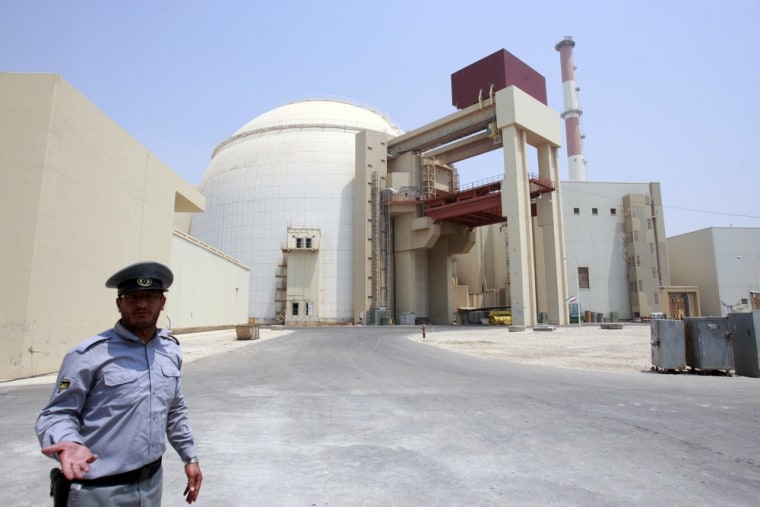The U.N. atomic agency says in a new report it has evidence that Iran continues to work on nuclear weapons despite international sanctions.
A second report also contains the International Atomic Energy Agency's most definitive statement on the issue of neighboring Syria's nuclear ambitions.
The first report says member states have given the agency fresh information alleging that Iran's stockpile of low-enriched uranium has continued to grow.
The report, obtained by news agencies including Reuters and The Associated Press, says the IAEA is assessing "further information related to such possible undisclosed nuclear related activities."
For several years, the IAEA has been investigating Western intelligence reports indicating Iran has coordinated efforts to process uranium, test explosives at high altitude and revamp a ballistic missile cone so it can take a nuclear warhead.
Iran, which says its nuclear program is aimed at generating electricity, has dismissed the allegations as forged.
IAEA Director General Yukiya Amano sent a letter to the head of Iran's atomic energy agency on May 6 "reiterating the agency's concern about the existence of possible military dimensions to Iran's nuclear program," the report said.
He requested Iran give prompt access to relevant locations, equipment, documentation and people to help clarify outstanding issues, the report added.
The IAEA remained concerned about possible past or current undisclosed nuclear-linked activities involving military related organizations, including activities "related to the development of a nuclear payload for a missile," the report said.
Since Amano's last report on Iran in February, it said, "the agency has received further information related to such possible undisclosed nuclear related activities."
An official with knowledge of the IAEA's investigation said the new information included alleged activities in Iran after 2004 "until rather recently," including in 2010.
The report said Iran's total output of low-enriched uranium since early 2007 had reached 4.1 tons, up from 3.6 tons in February, an amount that experts say could provide material for at least two bombs, if refined much further.
Enriched uranium can be used to fuel nuclear power plants, which is Iran's stated aim, or for weapons if processed much further.
The reports were drawn up for the June 6-10 meeting of the 35-nation IAEA board, which could send the Iraq and Syria issues to the U.N. Security Council.
In the Syria report, the IAEA said that a Syrian target bombed four years ago by Israel was very likely a nearly finished, covertly built nuclear reactor — its most definitive statement on the issue to date.
The finding backs U.S. assessments and moves Syria closer to potential U.N. Security Council action.
Syria says the nearly finished building had no nuclear uses. It has repeatedly turned down IAEA requests to revisit the site after allowing an initial 2008 inspection that found evidence of possible nuclear activities.
The West has become increasingly frustrated over what is seen as Syria's stonewalling of an IAEA probe into Dair Alzour, which U.S. intelligence reports said was a nascent North Korean-designed reactor intended to make bomb fuel.
The report suggested it may have been a gas-cooled graphite moderated reactor — a model found also in North Korea, whose nuclear weapons ambitions have drawn punitive U.N. measures.
The Vienna-based U.N. body had previously said there were indications nuclear activity may have taken place at the site.
"The agency regrets that Syria has not cooperated since June 2008 in connection with the unresolved issues related to the Dair Alzour site," the IAEA report said.
Western diplomats say Syria's rejections of repeated requests for follow-up access risk undermining the IAEA and the nuclear Non-Proliferation Treaty that underpins its work to prevent the spread of atom bombs, if nothing is done.
"It was a long time coming but I think it is a positive step," Paul Brannan, a senior analyst of the Washington-based Institute for Science and International Security (ISIS), said about the IAEA's report.
